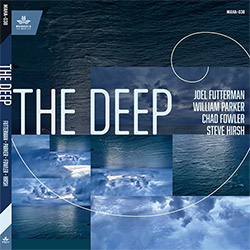
Sounding as though they'd played together for decades, this 1st meeting between pianist Joel Futterman, bassist William Parker, saxophonist Chad Fowler and drummer Steve Hirsh is a single 52-minute free jazz exposition as the four immediately fall into an invigorating conversation that continues through diverse moods from pinnacles of activity to reflective tone worlds; masterful!
In Stock
Quantity in Basket: None
Log In to use our Wish List
Shipping Weight: 3.00 units
Sample The Album:
Joel Futterman-piano
William Parker-bass
Chad Fowler-saxophone
Steve Hirsh-drumset
Click an artist name above to see in-stock items for that artist.
UPC: 195269178314
Label: Mahakala Music
Catalog ID: MAHA-038
Squidco Product Code: 32758
Format: CD
Condition: New
Released: 2022
Country: USA
Packaging: Digipack
Recorded at Master Sound Studio, in Virginia Beach, in January, 2022, by Rob Ulsh.
"Recorded in Virginia Beach in January 2022, this recording brings together for the first time Joel Futterman, William Parker, Chad Fowler and Steve Hirsh. The engineer hit the record button and almost an hour later, this suite was completed. It was that simple. And that deep.
Three tones as one: a manifestation, an invocation, an invitation to explore the depths of sound as it creates them. Joel Futterman's sonority suspends as it engulfs, as William Parker's countermelody envelops, as Steve Hirsh's cymbals sizzle, beckon and decorate and as Chad Fowler's tenor narrates the fiery musings of the deep-blue music's heart. Slowly, inexorably, with the pellucid light of investigation and the victories of unity gained, this quartet's first recording emerges from the depths of silence into moments of stark revelation
The finest music emanates from the vast reservoir of feeling, stopping time and exposing the infinite center of a liquid instant as waves approach, their microcosmic components foregrounded. Fowler and Futterman find new centers, as at 1:03, only to illuminate and then abandon them. As the shared sound progresses from reflectivity toward a coalescing dance of sonic particles, rhythm and tone converge as wave centers and decenters wave. Molten topographies of varied densities and constructions are revealed only to be absorbed, vast histories in climactic juxtaposition as cultures in dynamic disparity are referenced and recontextualized, each a historical entity in transition. The domes and arches typical of creatively improvised music are certainly present throughout, as at 2:28 and 44:43, but for each peak, there is the going under, a submerging into the more peaceful waters of shared experience. The piano trio emergent at 3:36 is mirrored near the 15-minute mark, except that Parker's gorgeous arco informs the latter in counterpoint to Futterman's foundational sonorities and rainbow colors. An entirely different dynamic of this quartet's versatility imbues the simultaneously multi-rhythmic duets at 25:20 as Parker and Fowler's capering counterpoint is borne aloft from the bedrock of Hirsh and Futterman's delicate rhythms and archetypal drones.
Look deeper still to discover the multivalent mysteries of what Parker so succinctly calls the tone-world, the infinities gathered and dispersed in the intimate shock and rebound of communal gesture, leaving as many questions as answers in their wake. How, at 17:17, is the reemergence of that achingly beautiful drone manifested, four voices emoting as one? How, at 34:30, is the perfectly timed and overwhelmingly simple statement of bass and cymbal so delicately realized?
There, in the tick of time toward transition, lies the mystery. The extended interaction and reaction immediately following is as pure as it is miraculous. Like the point of contact between wave and shore, or the moment when day ceremoniously joins night, Hirsh's majestic solo crashes, glides and ultimately descends toward eddies of tone, timbre and the asymmetrical repetitions attendant to the deepest listening. There, at the center of the maelstrom, time doesn't simply stop; it suspends. As Edgar Alan Poe demonstrated with such narrative force, a magical relativity is achieved, an equity in which each element balances the others while transcending its own boundaries. Each piano fifth, parabolic saxophone emotive, bass pizzicato and gently stroked tom or cymbal unite even as they propel. Each harmonic progression is both a point of departure and a nostalgic return, an entity in and of itself, a resolution to the connections drawing all into and from its Protean surfaces. Each pitch iteration tells a tale beyond words, an instantaneous narrative whose incalculable depth is matched by the simplicity of a tear, a smile, the abiding warmth of an embrace."-Marc Medwin
Artist Biographies
• Show Bio for Joel Futterman "Joel Futterman, Piano and Indian Flute Determined to push the limits of the piano to techniques never heard in jazz, Joel began a 25-year regimen of practicing 8-10 hours a day. During this period, he developed a three-hand technique based on completely autonomous playing between the hands. With more than 70 recordings, he is considered one of the most innovative yet enigmatic new music pianists. Known for his spirited, highly imaginative, and innovative piano technique, Joel Futterman is an internationally recognized veteran pioneer into the frontiers of spontaneous, improvised music. He is considered one of the foremost inventive and adventurous artists shaping the creative, progressive music scene today. Futterman continuously pushes the limits of the piano as he explores new musical horizons. He has performed across North America and Europe including at such noted music festivals as the Tampere Jazz Festival in Finland, the Vision Festival in New York, the New Orleans Jazz & Heritage Festival, and the Guelph Festival in Canada. He has performed with such notable jazz innovators as Jimmy Lyons, Rahsaan Roland Kirk, Paul Murphy, Joseph Jarman, Richard Davis, William Parker, Alvin Fielder, and Hal Russell; as well as Edward 'Kidd' Jordan, with whom he has had a highly productive association. For many years, Futterman has also played the Indian Wooden Flute. Joel Futterman was born in Chicago, IL. He grew up and lived in Chicago until 1972. Joel had piano lessons from about age 9-11, then continued playing on his own, eventually studying theory and harmony with Alan Swain. Joel met Clarence (Gene) Shaw when he was 18 and studied with Clarence for two years. Clarence was an important influence at the time. One night Clarence invited Joel to his home for a party. He introduced Joel to Charles Mingus. Joel recalls that Mingus gripped his hand firmly and stared up at the ceiling. Joel attended University of Illinois in Chicago obtaining a (B.S.). Herman Finer, professor of political science, was a profound influence and encouraged Joel to pursue his creative endeavors. While Joel was in college, his mother passed away and he isolated himself and began practicing 12 to 16 hours a day. Practicing was the only comfort for him at this time. Joel attended Northeastern University in Chicago and worked on an MS in Education. He was nine hours short of receiving the degree when he decided to leave Chicago. Joel did receive an MS in Education with an endorsement in Reading at Old Dominion University in 1975. In 1972, Joel moved to Virginia, where he resides today, in a personal quest to develop his creative voice. His first album, CAFETERIA, was released in 1980 to considerable acclaim due to its originality. Since then, his recordings have included a number of jazz legends, such as Jimmy Lyons, Richard Davis, Hal Russell, William Parker and others. In 1994, photographer Michael Wilderman introduced Joel to Edward 'Kidd' Jordan, and since then Joel has enjoyed many rewarding musical collaborations with Kidd and drummer Alvin Fielder. Also, Joel Futterman has had a deep association with artist Ike Levin, founder of the Charles Lester Label." ^ Hide Bio for Joel Futterman • Show Bio for William Parker "William Parker is a bassist, improviser, composer, writer, and educator from New York City, heralded by The Village Voice as, "the most consistently brilliant free jazz bassist of all time." In addition to recording over 150 albums, he has published six books and taught and mentored hundreds of young musicians and artists. Parker's current bands include the Little Huey Creative Music Orchestra, In Order to Survive, Raining on the Moon, Stan's Hat Flapping in the Wind, and the Cosmic Mountain Quartet with Hamid Drake, Kidd Jordan, and Cooper-Moore. Throughout his career he has performed with Cecil Taylor, Don Cherry, Milford Graves, and David S. Ware, among others." ^ Hide Bio for William Parker • Show Bio for Chad Fowler "I'm Chad Fowler. I write books, write and play music, write software, lead organizations (currently for Microsoft, in Berlin), invest in startups, speak at conferences, teach, learn, organize conferences, etc. I started and co-organized a couple of Ruby-related conferences including The International Ruby Conference and RailsConf." ^ Hide Bio for Chad Fowler • Show Bio for Steve Hirsh Steve Hirsh: "About Me I come from a non-musical family. But every week growing up, I'd get my allowance and go to the local record store to pick up the latest hit. At 10 years old, I started guitar lessons at a neighborhood community center. I wanted to learn Beatles tunes but instead found myself learning classical guitar. I wasn't into it and stopped after a year. Then in junior high, I had a band/orchestra class. I started off playing alto sax. But in the summer after my first year, I got braces on my teeth and my orthodontist told my mother that playing a reed instrument would be bad for my overbite. So in my second year, I started on drums because I figured it would be the easiest instrument to catch up on. The bug bit me then, and I would spend hours playing along to records on my snare drum. I went to a specialized public high school in New York City that focused on math and science. They had no music classes, except for a single music appreciation class that dealt entirely with European classical music. There was one Black girl in my class (!). One day she asked the teacher why he didn't teach anything about jazz and Miles Davis and John Coltrane. That was the first time I heard those names. The teacher said something dismissive and moved on. Somewhere around there I got my first drum set and was trying to figure out how to play it. One day in the library, I was thumbing through the record collection and came across Kind of Blue and Blue Trane. I remembered hearing Miles' and Trane's names and took the records home. I was astounded by what I heard, particularly drummer Philly Joe Jones on Blue Trane. I had no idea what or how he was playing and could hardly believe that there was only 1 drummer. Over the next 10 or so years, I dove deeper and deeper into the music. I worked forwards and backwards - Bitches Brew-era Miles, and late John Coltrane, and Max and Bird and then everyone in between, and then back to Basie and Ellington and Papa Jo Jones. I was playing in rock and blues bands and saw jazz drumming as beyond my abilities. After my 2nd year of college, I told my parents that I wanted to transfer to Berklee College of Music. But I had no one to help me navigate that change and I was unable to do it myself. Eventually, I just quit college, moved to California, and started playing in bands. I wound up hanging out and then working at Keystone Korner. I saw everyone there - Dexter Gordon, Max Roach, Art Blakey, Rhasaan Roland Kirk, Stan Getz, Mary Lou Williamson, the house band with George Cables and Eddie Marshal, Billy Higgins, Woody Shaw, Elvin Jones. And I started trying to play the music. But eventually, I quit playing for a variety of reasons, including the inability to believe I could really ever play it well and authentically, and the need to get away from the drug scene (this was San Francisco in the mid-'70s). But I never stopped listening, and eventually went back to playing in rock and blues bands. I quit playing again in the early 80s but then picked it back up 20 years later when I bought my son a drum set. I bought it for him, then took it over (I sat down behind it to check it out and didn't come out for a week.). I've been playing steadily since then. I played a lot of straight-ahead jazz gigs, a lot of dinner jazz. But I always had a taste for the more outside sounds, and for the last few years, that's exclusively what I've been playing. I have led several improvising ensembles in the last few years, and have played most of the Twin Cities venues that are open to this music, including Khyber Pass Cafe, The Icehouse, Jazz Central Studios, The Cedar Cultural Center, and Grand Oak Opry. I started a regular series at the East Side Freedom Library in St. Paul, featuring my groups and other improvising ensembles. I also hosted a weekly open session there, where anyone could come and gain experience improvising with experienced players. I've played with (among others) William Parker, Joel Futterman, Eri Yamamoto, Matthew Shipp, Ivo Perelman, Luke Stewart, Douglas Ewart, Babatunde Lea, George Cartwright, Donald Washington, Chad Fowler, Zoh Amba, Brad Holden, Dick Studer, Josh Granowski, Matt Trice, Kavyesh Kaviraj, and DeVon Russell Grey. In the past year, with the isolation of the pandemic and the near-total loss of performance opportunities, I have become involved in several remote collaborations, with both old and new friends. There are a few of those on the Recordings page, if you're curious. My latest releases are Ebb & Flow, with Joel Futterman and Chad Fowler, Notice That There, with Geirge Cartwright, Chad Fowler, Christopher Parker and Kelley Hurt, Warp & Weft, a collaboration with the extraordinary pianist Joel Futterman, Two Five None, a duo with Chad Fowler, and You Know When It's Time by Original Mind, all on Mahakala Music https://mahakalamusic.bandcamp.com/. There's more stuff coming - follow me on Bandcamp, follow Mahakala Music, and send me a note asking to be added to my email list. I endorse Canopus drums and Bosphorus cymbals. Beautiful instruments I'm lucky to play. Born and raised in New York City, I now make my home in the woods of Northern Minnesota." ^ Hide Bio for Steve Hirsh
2/6/2026
Have a better biography or biography source? Please Contact Us so that we can update this biography.
2/6/2026
Have a better biography or biography source? Please Contact Us so that we can update this biography.
2/6/2026
Have a better biography or biography source? Please Contact Us so that we can update this biography.
2/6/2026
Have a better biography or biography source? Please Contact Us so that we can update this biography.
Track Listing:
1. The Deep 51:56
Improvised Music
Jazz
Free Improvisation
Collective & Free Improvsation
NY Downtown & Metropolitan Jazz/Improv
Quartet Recordings
Parker, William
Staff Picks & Recommended Items
New in Improvised Music
Search for other titles on the label:
Mahakala Music.


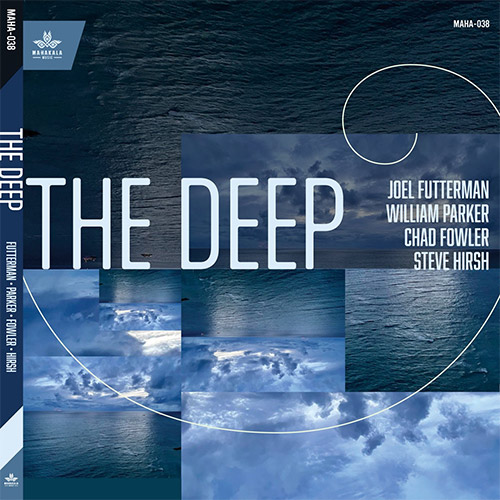

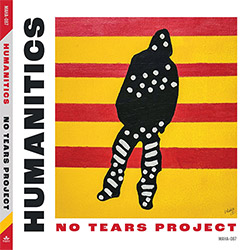
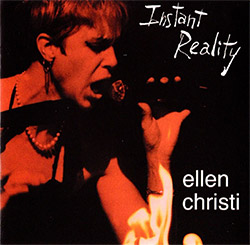
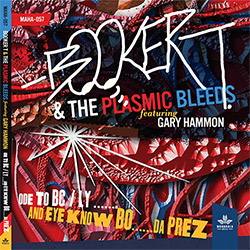
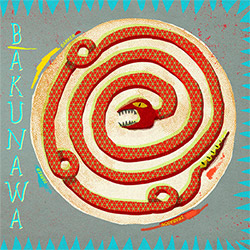

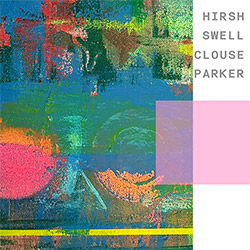
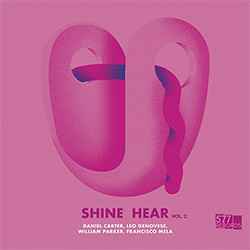
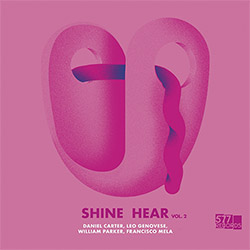
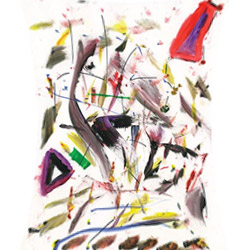
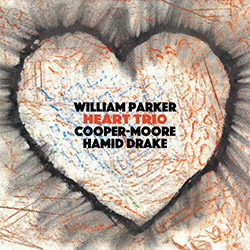

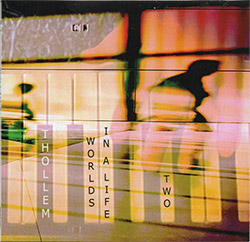
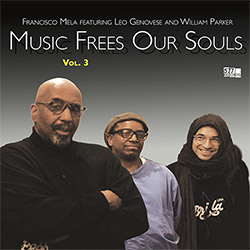




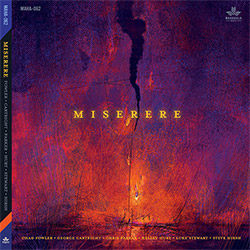
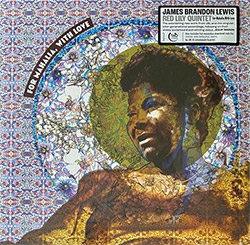

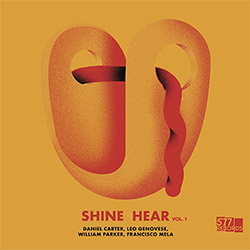

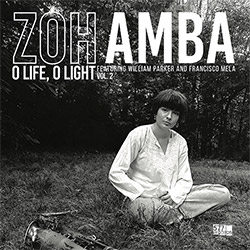
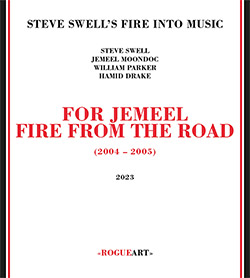
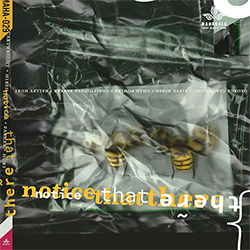

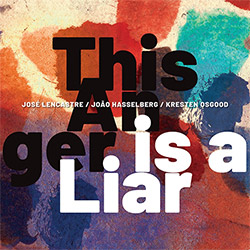


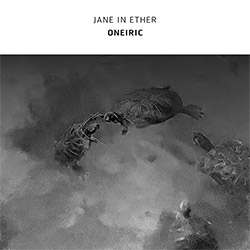
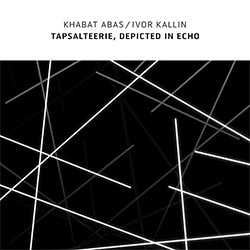
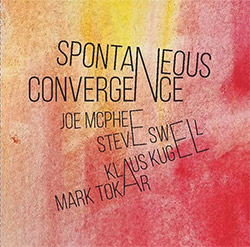

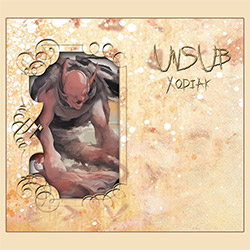
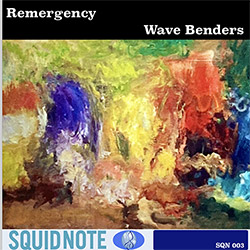
![Collins, Nicolas / Birgit Ulher: Spark Gap [CD + DOWNLOAD]](https://www.teuthida.com/productImages/misc4/37072.jpg)
![Ehrlich, Marty / Julius Hemphill : Circle the Heart [CD + DOWNLOAD]](https://www.teuthida.com/productImages/misc4/37073.jpg)
![John Butcher : Away, I Was [CD + DOWNLOAD]](https://www.teuthida.com/productImages/misc4/37074.jpg)
![Edwards, Isidora / Biliana Voutchkova / Zosha Warpeha : A Far Within [CD + DOWNLOAD]](https://www.teuthida.com/productImages/misc4/37075.jpg)
![Futterman, Joel: Absorb [DIGITAL RELEASE]](https://www.teuthida.com/productImages/misc4/37114.jpg)
![Futterman, Joel: Reflective [DIGITAL RELEASE]](https://www.teuthida.com/productImages/misc4/37115.jpg)
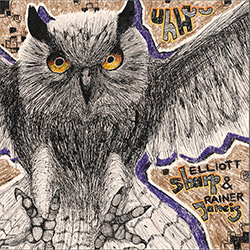
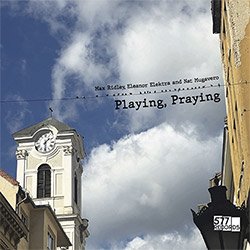

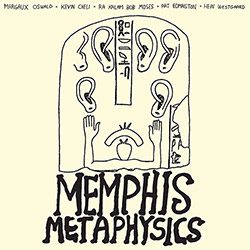
![Hoffman, Christopher: REX [VINYL]](https://www.teuthida.com/productImages/misc4/36934.jpg)
![Wrens: Half Of What You See [VINYL]](https://www.teuthida.com/productImages/misc4/37095.jpg)

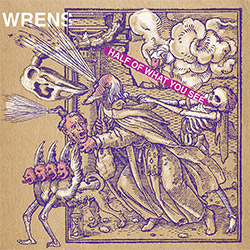
![Cartier, Pierre: Chansons de Douve [2 CDs]](https://www.teuthida.com/productImages/misc3/cartierChansonsDouve.jpg)



![Davies, Angharad / Burkhard Beins : Meshes Of The Evening [VINYL]](https://www.teuthida.com/productImages/misc4/36990.jpg)
![Bussmann, Nicholas / Sven-Ake Johansson / Yan Jun: Tea Time [Vinyl]](https://www.teuthida.com/productImages/misc4/36991.jpg)
![Feldman, Morton / GBSR Duo w/ Taylor MacLennan: Trios [6 CD BOX SET]](https://www.teuthida.com/productImages/misc4/37020.jpg)
![Williams, Jessica: Blue Abstraction: Prepared Piano Project 1985-1987 [VINYL]](https://www.teuthida.com/productImages/misc4/37080.jpg)
![Levin, Daniel / Laurent Estoppey: Freedom From The Known [VINYL]](https://www.teuthida.com/productImages/misc4/37091.jpg)
![Fagaschinski, Kai: Aerodynamics [VINYL 2 LPs]](https://www.teuthida.com/productImages/misc4/36992.jpg)
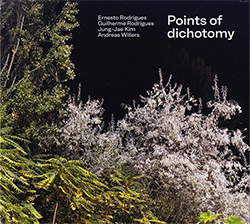
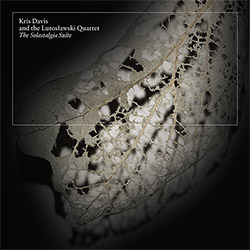






![Parker, Evan / Andrea Centazzo: Bullfighting On Ice! Live In Padova 1977 [VINYL]](https://www.teuthida.com/productImages/misc4/37064.jpg)
![Curran, Alvin / Andrea Centazzo / Evan Parker: Real Time [VINYL]](https://www.teuthida.com/productImages/misc4/37065.jpg)
![Curran, Alvin / Andrea Centazzo / Evan Parker: Real Time Two [VINYL]](https://www.teuthida.com/productImages/misc4/37066.jpg)
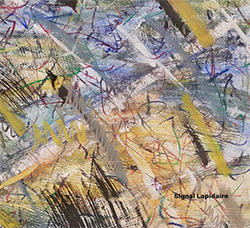
![Allbee, Liz: Breath Vessels [VINYL]](https://www.teuthida.com/productImages/misc4/37012.jpg)
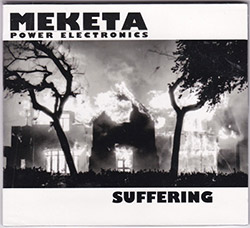
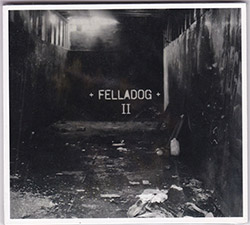



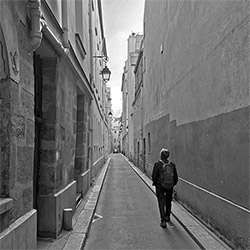
![Belorukov, Ilia / Alex Riva: Wrestling For Futility [CASSETTE w/DOWNLOAD]](https://www.teuthida.com/productImages/misc4/36994.jpg)


![Genthon, Anouck / Lionel Marchetti: Suite Blanche [2 CDs]](https://www.teuthida.com/productImages/misc4/36642.jpg)
![Toeplitz, Kasper T.: Erosions Programmees [CD + BOOKLET]](https://www.teuthida.com/productImages/misc4/36639.jpg)
![Gate, The : Almost Live [CASSETTE + MAGAZINE]](https://www.teuthida.com/productImages/misc4/36836.jpg)






![A Magic Whistle: The Solar Cell [VINYL]](https://www.teuthida.com/productImages/misc4/36658.jpg)

![McGee, Hal: Columbus Expedition [Cassette w/ Download]](https://www.teuthida.com/productImages/misc4/36650.jpg)


![Jaeger, Kassel: Fernweh [VINYL 2 LPs]](https://www.teuthida.com/productImages/misc4/36541.jpg)


![Frey, Jurg : Composer, Alone [3 CDs]](https://www.teuthida.com/productImages/misc4/36927.jpg)








![Frey, Jurg with ensemble]h[iatus: Je Laisse A La Nuit Son Poids D](https://www.teuthida.com/productImages/misc4/36988.jpg)




![Pisaro-Liu, Michael: Within (2) / Appearance (2) [2 CDs]](https://www.teuthida.com/productImages/misc4/36831.jpg)










![Musicworks Magazine: #151 Summer 25 [MAGAZINE + CD]](https://www.teuthida.com/productImages/misc4/36559.jpg)

![Brown, Dan / Dan Reynolds: Live At The Grange Hall [unauthorized][CASSETTE]](https://www.teuthida.com/productImages/misc4/36245.jpg)

![Zorn, John: The Song of Songs [CD + CD BOOK]](https://www.teuthida.com/productImages/misc4/36923.jpg)

![Coultrain: Mundus [COLORED VINYL]](https://www.teuthida.com/productImages/misc4/33056.jpg)
![Hprizm: Signs Remixed [COLORED VINYL]](https://www.teuthida.com/productImages/misc4/30635.jpg)
![Halls Of the Machine: All Tribal Dignitaries [CASSETTE w/ DOWNLOAD]](https://www.teuthida.com/productImages/misc4/36134.jpg)



![Koenjihyakkei: Live at Club Goodman [2 CDs]](https://www.teuthida.com/productImages/misc4/36111.jpg)

![Sorry For Laughing (G. Whitlow / M. Bates / Dave-Id / E. Ka-Spel): Rain Flowers [2 CDS]](https://www.teuthida.com/productImages/misc4/35985.jpg)

![Rolando, Tommaso / Andy Moor : Biscotti [CASSETTE w/ DOWNLOADS]](https://www.teuthida.com/productImages/misc4/36106.jpg)


![Electric Bird Noise / Derek Roddy: 8-10-22 [CD EP]](https://www.teuthida.com/productImages/misc4/35970.jpg)








![Elephant9 : Mythical River [VINYL]](https://www.teuthida.com/productImages/misc4/34624.jpg)



![Elephant9 with Terje Rypdal: Catching Fire [VINYL 2 LPs]](https://www.teuthida.com/productImages/misc4/35355.jpg)
![Coley, Byron: Dating Tips for Touring Bands [VINYL]](https://www.teuthida.com/productImages/misc4/17906.jpg)

![Lost Kisses: My Life is Sad & Funny [DVD]](https://www.teuthida.com/productImages/misc4/lostKissesDVD.jpg)